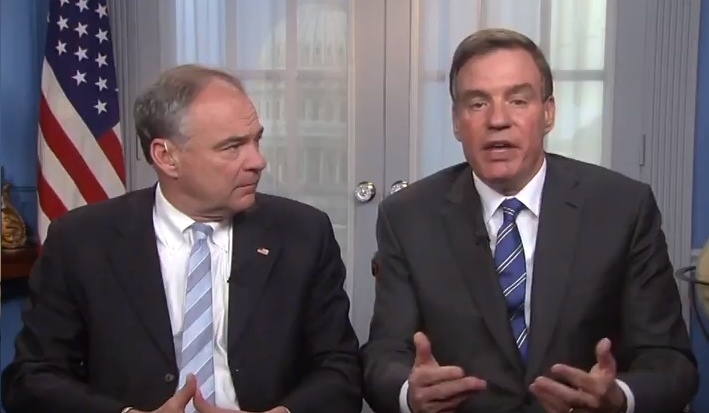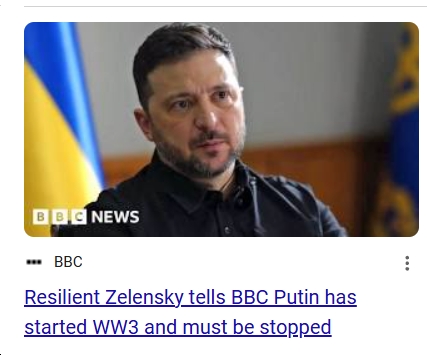See below for video and a few highlights from Sen. Mark Warner’s interview with the British program “Infotagian.” As the show’s description says:
“For this special 50th episode, Damian Collins MP is joined by Senator Mark Warner. Chair of the US Senate Intelligence Committee, Senator Warner has been one of the leading voices in the campaign to address social media regulation and fight against disinformation. He is currently the sponsoring the new Safe Tech Act legislation in the US…This special episode was recorded at Voxpod studio in London.”
Collins started the show by introducing Sen. Warner as “one of the world’s
leading voices calling out social media disinformation and the harm it can cause
individual citizens and democracy.” Collins added that Sen. Warner is “Chair of the United States Senate Intelligence Committee and also sponsor of a new Safe Tech Act, designed to limit the protection from liability of social media companies for content on their platforms.” Which obviously is badly, badly needed after what we saw on January 6, 2021, and more broadly for a whole host of reasons. With that, see below the video for a few more highlights from this fascinating, important interview.
Sen. Warner: “I think we have seen the power of these social media companies, unfortunately, in the United States. While we have raised the alarm, Congress has done virtually nothing from a legislative standpoint.”
Sen. Warner: “I think almost throughout the whole West, we’re still struggling for
what will be the legislative solution.”
Sen. Warner: “We’ve seen – whether it be in Myanmar…Brazil…The Philippines…authoritarian regimes all across the world use social media in ways that are both anti-democratic and in many cases in ways that advocate violence. And I fear that Western democracies are still behind where the social media companies are at. And our notion, at least in the United States, that we have to rely upon the good will of a certain number of CEOs to make the right decision, I think is is wrong. And we have seen certain companies like Facebook say they welcome regulation now…In the UK, in America, in the EU writ large, we do need to find a regulatory framework for people to still allow to use these platforms to express their views, but to put some guardrails in place.”
Sen. Warner on 1/6/21: “Well Damian, it was a stunning day. I think it will go down in American history maybe with not quite the same force of as 9/11, but it will go down
in American history…with all due respect to our friends from the UK, it was the first time the capital of America had been burnt or sacked since British troops did that in the the unpleasantries of what we call the War of 1812…I felt particularly upset with…images of these thugs walking through the halls of the Capitol and those images literally flashing
all over the world and in many ways that was incredible fodder to individuals like Vladimir Putin that could point out, see, these Western democracies, there’s nothing special about them. And in so many ways that insurrection was planned and developed through social media, both through traditional platforms like Facebook and Twitter, YouTube, but it was also planned and advocated on some of the secondary sites like Parler, and I think some of the the actual training and true scheming was even done on the dark web. So then President Trump had called this crowd together, it had been connected through social media. All of this making even more important the need for the American Congress to finally act on trying to put some guard rails around social media…”
Sen. Warner: “For many of my European friends, they don’t understand why we can’t put
some guardrails in place. We have the first amendment in America, which guarantees that right for speech. My belief is that first amendment guarantees your right to say stupid things, ignorant things, crazy things. But that right does not extend to have that kind of commentary amplified four billion times on Facebook. So the way we’ve tried to thread this needle – and there are a variety of other legislative approaches from all out repeal of Section 230 that would then hold these platforms to the same levels of liability that a a television station or newspaper…in the late 90s when these platforms were first emerging, the idea that they were simply dumb pipes…and that the operator of the telecom company or the operator of these social media companies shouldn’t be responsible maybe had some merit, as these companies were starting in the late 90s. By the time we come to the 2020s where these companies have as greater power as any company in in the world – in America 65 percent of Americans get some or all of their news off of Facebook and YouTube and Google – they are not dumb pipes; there is a great deal of selection going on in terms of what kind of news you receive. And my view is that the the decision that Facebook and Twitter and Google make is not that they bring a particular political bias left or right, they bring a bias that’s going to reinforce your views. If you lean left, you’re going to hear further left news. If you…lean right, you’re going to hear the opposite.”
Sen. Warner: “So what we’ve tried to do on Section 230 is say, you know, that First Amendment right exists, but there are certain areas that section should not apply to. And let me give you three or four examples. First of all, Section 230 should not apply to commercial advertisements on the web. If Facebook is earning revenue from a firm that is promoting a financial scam on on the internet, Facebook should not be protected from the illegality that is coming out of that paid advertising…Number two, there are both in the UK and the United States we’ve seen enormous issues around cyber bullying, around abuse…We’re saying if you can get injunctive relief in a court system, Section 230 should not protect you against injunctive relief. Number three, we also said uh our civil rights laws should should not be prohibited from being enforced. Many of these sites preach extraordinarily racist and hateful behavior….That kind of speech would be violative of civil rights laws if you were if you were making those statements in another setting. So we said civil rights laws should be able to be included…This is not a perfect solution, but it feel in my mind it falls short of full repeal. It says let’s go ahead and maintain the
basic premise around Section 230, First Amendment protections, but exempt those protections from certain activities. And there is a precedent in the United States on this, because we have already banned child pornography, we have banned sex trafficking, we
have banned bomb making…”
Sen. Warner: “I’m still trying to work through in my mind the amplification issue. I mean,
that would be another way within the American structure to say, okay, you’ve got a First Amendment…[to] say stupid stuff, but you don’t have the right to have it amplified four billion times.”
Sen. Warner: “There are a number of people in the United States and legislative efforts to
say, you know, less about content and more about just the size and power of these enterprises. So let’s go ahead using our antitrust rules in America and break them up. I’m not fully in that camp yet. But if we can’t find a way to grapple with their size and power, I’m open to that. I’ve also put forward a series of legislative proposals that are more what I call in the middle, that would try to say how do we encourage additional competition…one would be… there’s nothing wrong with Facebook or Google monetizing our personal information, personal data, but I think we as consumers ought to have a right to know what that data is worth. So I have a data valuation bill.…The companies hate because they don’t want…to tell the consumer…because in a sense we’re not customers, we’re really products for these enterprises…third on a pro-competition standpoint, as you know my background was in telecommunications, and it used to be very difficult in America if you were going to move from one telco to another, until we had what was called number portability, so you could move from one company to another and keep your same phone number, so you didn’t have all the hassles of trying to re-educate all your friends. We’ve got legislation that also would say if you’re tired of how Facebook treats you, you can move all your data easily to a new site and still have interoperability back to those friends and family members who would remain on Facebook…”
Sen. Warner: “I hope the administration does move. My belief has been the platform companies took advantage of the dysfunction of the United States congress and put off legislation for some time. It may come back and bite them, because by the time we finally do regulate, I think we will end up with a much more rigorous regime than if we’d started years before…”
Sen. Warner: “We all want a world regardless of what our our laws or constitutions say, where people can speak freely and share ideas and indeed have the right to say things
that other people will disagree with, but at the same time not allow social media to become a space that is dominated by hate speech, disinformation and the organizations that can mobilize the greatest number of cyber warriors to back their cause. And then you could end up with what happened on the 6th of January, where I think we have to be concerned not just about the events of that day, but the drumbeat of information that led up to it…what we call here domestic violent extremists, this is not an American-only phenomenon; there are similar individuals maybe not at the same numbers in the UK, but we see a great deal of this activity in Germany, in Eastern Europe, we often see it amplified by Russia.”




![Thursday News: “Europe draws red line on Greenland after a year of trying to pacify Trump”; “ICE Agent Kills Woman, DHS Tells Obvious, Insane Lies About It”; “Trump’s DOJ sued Virginia. Our attorney general surrendered”; “Political domino effect hits Alexandria as Sen. Ebbin [to resign] to join Spanberger administration”](https://bluevirginia.us/wp-content/uploads/2026/01/montage010826.jpg)
![Sunday News: “Trump Is Briefed on Options for Striking Iran as Protests Continue”; “Trump and Vance Are Fanning the Flames. Again”; “Shooting death of [Renee Good] matters to all of us”; “Fascism or freedom? The choice is yours”](https://bluevirginia.us/wp-content/uploads/2026/01/montage011126.jpg)












